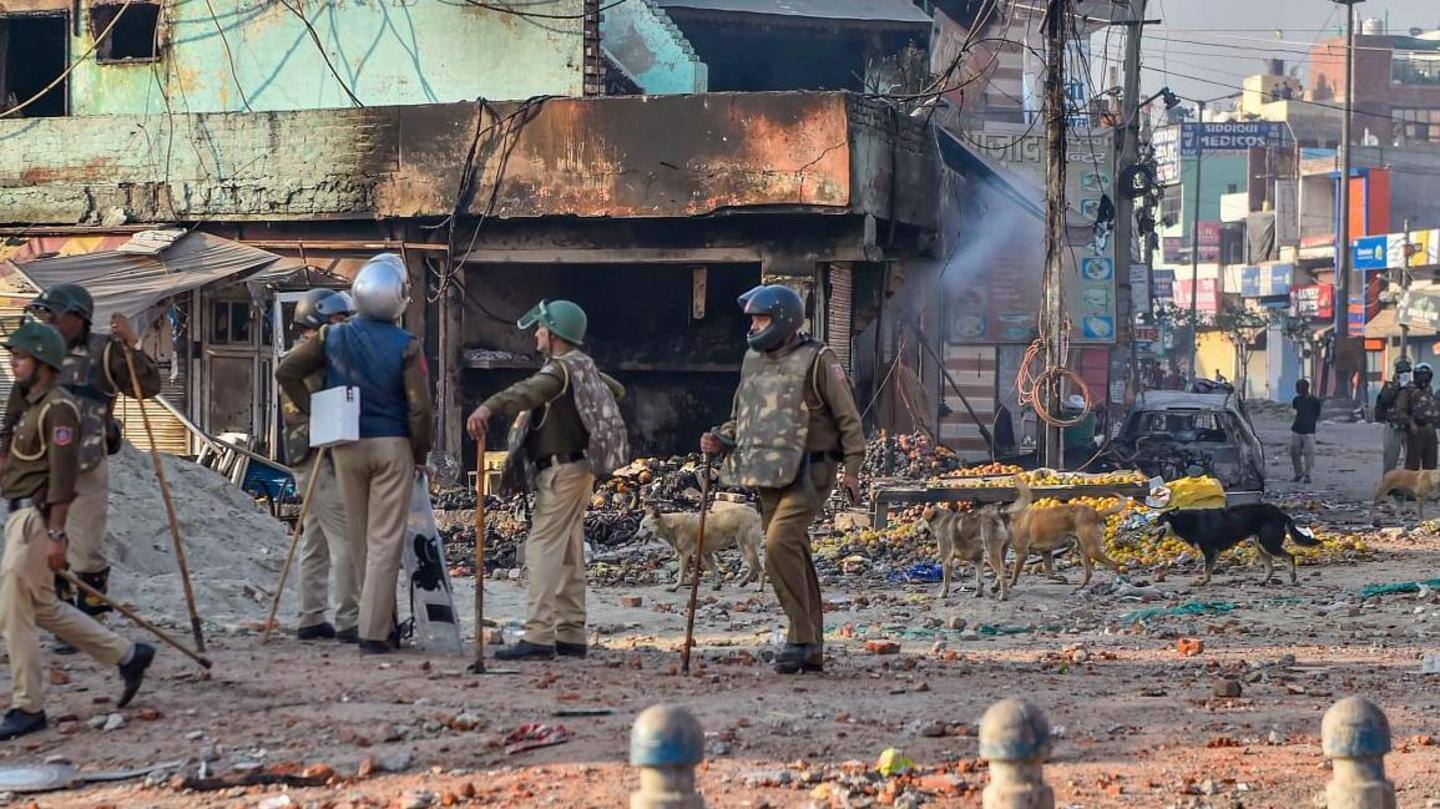
How were Delhi riots planned? Police explains alleged conspirators' role
What's the story
In its charge-sheet related to Delhi riots, that broke out in February 2020, the Delhi Police claimed that seeds for the violence were sowed after the results of the 2019 general elections were declared and that the conspirators wanted to topple an elected government.
These findings were a part of the 2,695-page "final report" of the 17,000-pages-long charge-sheet, which names 15 people.
Here's more.
Details
Police defined terrorism, explained it fits bill in this case
DCP (Special Cell) PS Kushwah and ACP (Special Cell) Alok Kumar signed the final report, wherein terrorism was defined. The report said the use of violence to make governments submit to demands amounts to terrorism.
In India, Section 15 of UAPA, clearly defines terrorism, police said.
About the Delhi riots, police said the accused intended to force the government to withdraw the Citizenship Amendment Act (CAA).
Quote
What happened qualifies as terrorist activity: Delhi Police
"Causing death of over 50 persons and causing serious injuries to over 500 public persons apart from massive damage to public and private properties by arson and other means would also clearly fall within the definition of terrorist activity," the report added, as per IE.
Charge-sheet
Conspirators timed violence in line with Trump's visit to India
The police mentioned call detail records, the money track, and chats in WhatsApp groups like DPSG (Delhi Protests Support Group) and Warriors.
According to the charge-sheet, the conspirators executed their plan when US President Donald Trump was on his first state visit to India, to hit "two birds with a single stone."
They took to communal violence to blackmail the government, indicated the charge-sheet.
Chats
Police claimed the conspiracy took communal turn after CAA
Delhi Police is in possession of chats by Yogendra Yadav, filmmakers Rahul Roy and Saba Dewan, Kalita, and Narwal of activist group Pinjra Tod, Annie Raja of CPI, as well as activists Harsh Mander.
Though the conspiracy started organically when a group called Muslim Students of JNU was formed, things took a communal turn after CAA's passage, alleged the cops.
Quote
Conspirators always had a radically communal agenda, claimed police
"An overtly communal seed was sown after CAB...to the subsequent formation of JCC and finally the emergence of DPSG, which provided a secular facade and Naxal genes of violent resistance to an otherwise radically communal agenda," said Delhi Police.
Meeting
Moreover, at a meeting in Chand Bagh, logistics were discussed
In the charge-sheet, Delhi Police also revealed details of a meeting held at Chand Bagh on the intervening night of February 16 and 17.
It was at this meeting, that they decided to protest in areas like North-East, Shahdara, and South Districts.
They arranged for transportation, brought in manpower, and planned logistics to execute the protests against CAA across the National Capital.
Chakka Jam
Chakka Jaam wasn't spontaneous, was meant to spark tensions
Further, the Delhi Police said the conspirators wanted to convert protest into chakka jaam.
"The chakka jaam would be followed by confrontation and attack on policemen and public persons, damage, and destruction of public property by use of arson and other means in these so engineered riots," the charge-sheet reads, reports India Today.
A total of 747 witnesses have been listed in the charge-sheet.
Funding
The conspirators allegedly received over Rs. 1 crore
About the money trail, Delhi Police said five accused — suspended AAP member Tahir Hussain, former councilor Ishrat Jahan, student Meeran Haider, activist Khalid Saifi, and Shifa-ur-Rehman — got Rs. 1.61 crore.
Of the money, Rs. 1.48 crore was spent on "managing the protest sites" and "executing riots conspiracy."
Ishrat, Delhi Police claimed, received Rs. 4 lakh from Corporation Bank account in Maharashtra.
Statement
Accused denied the charge-sheet, said Delhi Police lacks evidence
However, the alleged conspirators have dismissed the charge-sheet.
"This is a case of fundamental rights and there is not an iota of evidence against my client. The allegations about funding are all concocted facts and there is nothing in the charge-sheet to prove the same," said Ishrat's lawyer Pradeep Teotia.
Similarly, Saifi's counsel Harsh Bohra said, "This charge-sheet is completely rubbish."